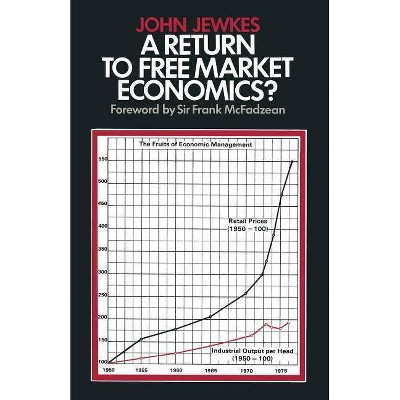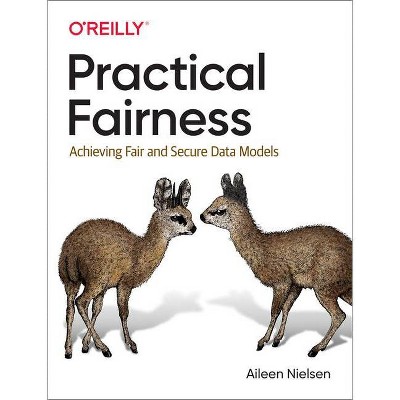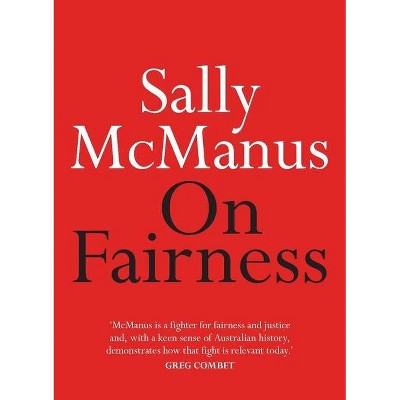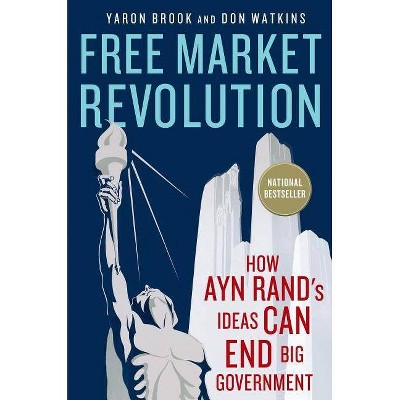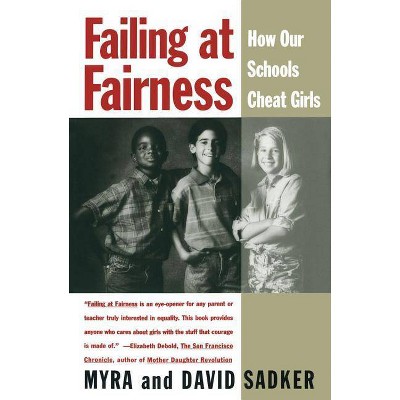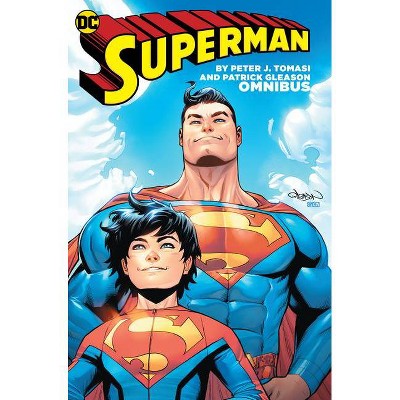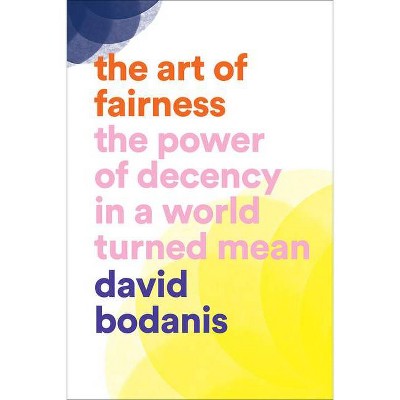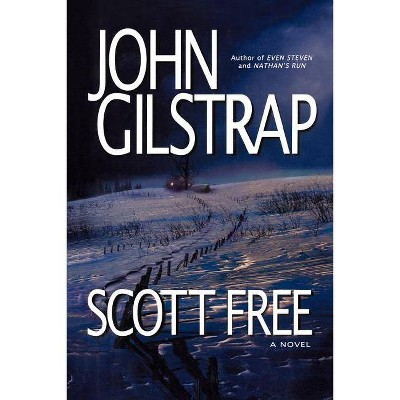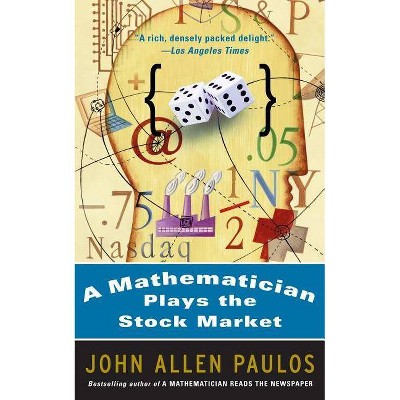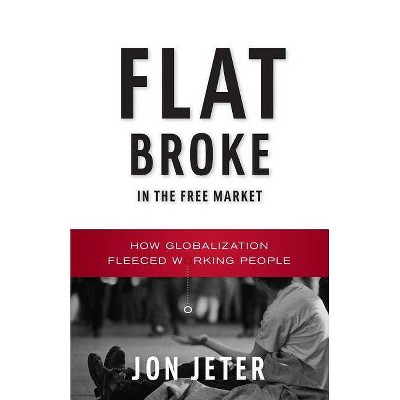Free Market Fairness - by John Tomasi (Paperback)
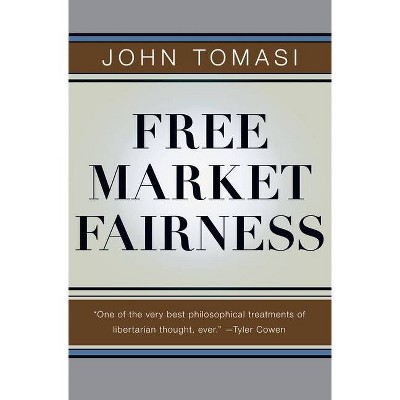
Similar Products
Products of same category from the store
AllProduct info
<p/><br></br><p><b> Book Synopsis </b></p></br></br><p><b>A provocative new vision of free market capitalism that achieves liberal ends by libertarian means</b> <p/>Can libertarians care about social justice? In <i>Free Market Fairness</i>, John Tomasi argues that they can and should. Drawing simultaneously on moral insights from defenders of economic liberty such as F. A. Hayek and advocates of social justice such as John Rawls, Tomasi presents a new theory of liberal justice. This theory, free market fairness, is committed to both limited government and the material betterment of the poor. Unlike traditional libertarians, Tomasi argues that property rights are best defended not in terms of self-ownership or economic efficiency but as requirements of democratic legitimacy. At the same time, he encourages egalitarians concerned about social justice to listen more sympathetically to the claims ordinary citizens make about the importance of private economic liberty in their daily lives. In place of the familiar social democratic interpretations of social justice, Tomasi offers a market democratic conception of social justice: free market fairness. Tomasi argues that free market fairness, with its twin commitment to economic liberty and a fair distribution of goods and opportunities, is a morally superior account of liberal justice. Free market fairness is also a distinctively American ideal. It extends the notion, prominent in America's founding period, that protection of property and promotion of real opportunity are indivisible goals. Indeed, according to Tomasi, free market fairness is social justice, American style. <p/>Provocative and vigorously argued, <i>Free Market Fairness</i> offers a bold new way of thinking about politics, economics, and justice--one that will challenge readers on both the left and right.</p><p/><br></br><p><b> From the Back Cover </b></p></br></br><p>"This book provides an original defense of classical liberalism. Tomasi argues that the high liberal conception of free and equal moral persons requires robust economic liberties as a condition of individual independence and self-authorship, while also justifying social supports for the less advantaged. <i>Free Market Fairness</i> is an important contribution to liberal thought."<b>--Samuel Freeman, University of Pennsylvania</b></p><p>"Tomasi's 'market democracy' is a fresh, important research program."<b>--Elizabeth Anderson, University of Michigan</b></p><p>"The great political power of free market ideas in recent decades has been unmatched by philosophical and moral defenses. John Tomasi's fresh exploration of market liberty will challenge orthodoxies left and right. An important and timely book."<b>--Stephen Macedo, Princeton University</b></p><p>"This is one of the very best philosophical treatments of libertarian thought, ever. John Tomasi cements his position as one of America's leading social and political philosophers."<b>--Tyler Cowen, author of <i>Creative Destruction</i></b></p><p>"This book represents the most ambitious recent effort by a political philosopher to square the circle: free markets <i>and</i> fairness. Even readers who disagree with Tomasi's conclusions will find insight and clarity on every page."<b>--Richard Epstein, New York University</b></p><p>"Tomasi's elegant book resembles a long and friendly conversation between Friedrich Hayek and John Rawls--a conversation which, astonishingly, reaches agreement."<b>--Deirdre McCloskey, author of <i>Bourgeois Dignity</i> and <i>The Bourgeois Virtues</i></b></p><p>"Tomasi is sympathetic to, and captures much of the point of, positions to the right of his, and positions to the left. The result is disarming and genuine. Readers will find themselves turning the pages, hoping not so much to spot the flaw as simply to learn something, and they will not be disappointed."<b>--David Schmidtz, University of Arizona</b></p><p>"This book makes a case that needed making and that will have a large impact on contemporary thinking about social justice."<b>--Michael Zuckert, University of Notre Dame</b></p><p>"Hayekian freedom and Rawlsian social justice both evoke attractive visions of how human beings might live together--something seldom acknowledged in our polarized political world. John Tomasi's Free Market Fairness treats both traditions with depth, nuance, and unremitting fair-mindedness, and then points us toward a synthesis. Social democrats and libertarians equally need to read this book."<b>--Charles Murray, American Enterprise Institute</b></p><p>"Political philosophers are apt to dig in to carefully constructed ideological bunkers from which they lob argumentative mortar shells at their opponents. John Tomasi prefers instead to build bridges. Well-crafted and provocative, <i>Free Market Fairness</i> will surely stimulate much conversation--and perhaps a few mortar rounds in response."<b>--Loren Lomasky, University of Virginia</b></p><p>"This is a terrific book--lively, stimulating, novel, and important. Written with clarity and lightness, it is appealingly wide-ranging, spanning political philosophy, intellectual history, and more. It will be widely read and cited."<b>--Jacob T. Levy, McGill University</b></p><p/><br></br><p><b> Review Quotes </b></p></br></br><br><i>Free Market Fairness</i> is a fine book that merits promotion, a merit raise, a cohort of graduate students, a fine reputation, and all the other benefits of academic life. The book is well written and well researched. The arguments are clearly stated and well defended. Political thinkers of all stripes will benefit from Tomasi's discussion of classical liberalism and libertarianism.<b>---Mark A. Graber, <i>Review of Politics</i></b><br><br>[<i>Free Market Fairness</i>'s] aim is to question opposed modes of thought and find a way between them. Saying that his book was written for 'ideologically uncommitted readers, ' Mr. Tomasi invites them and others to join him in exploring the ideas he has outlined. It is an invitation well worth accepting, especially in an election year.<b>---Adam Wolfson, <i>Wall Street Journal</i></b><br><br>Brilliant. . . . The heart of Tomasi's book entails serious engagement with John Rawls and his liberal theory of justice as fairness.<b>---Ryan T. Anderson, <i>Weekly Standard</i></b><br><br>In many respects, [Tomasi] is a classical liberal, but he also retains a strong commitment to the worst off in society. He is a supporter of both free-market capitalism and of safety nets. His goal is to combine economic liberty and social justice. In attempting to transcend the standard positions, he should be commended.<b>---Daniel Ben-Ami, <i>Spiked Review of Books</i></b><br><br>John Tomasi has written a spirited, accessible book that successfully argues the classical liberal tradition . . . of private economic liberty as a necessary and equal partner with social and political liberties in a free and just democratic society. This integrated, constructive approach . . . also recognizes the importance of social justice, a high liberal concept that he redefines by employing the principles of classical liberal thought. . . . Tomasi has provided the intellectual and justificatory framework for classical liberal adherents to robustly explore opportunities in a market-democracy research program.<b>---Thomas A. Hemphill, <i>Journal of Markets and Morality</i></b><br><br>One could hardly imagine John Tomasi's <i>Free Market Fairness</i> coming along at a more opportune time. Stump-speech rhetoric seems to have turned its attention (at least nominally) towards the concept of fairness. . . . The proper role of government is up for debate again. . . . Tomasi offers a clear-headed exploration of these and other issues during a moment of noticeable obtuseness and obfuscation in American politics [as] an accident of timing, incidental to his larger project, which is both ambitious and deeply needed.<b>---Robert Herritt, <i>Policy Review</i></b><br><br>Tomasi has done us all a service by starting, if not by ending, this important conversation.<b>---John Thrasher, <i>Public Choice</i></b><br><br>Tomasi presents a powerful vision of 'social justice, American style' . . . [and] provides a refreshing framework for thinking about the ability of free markets and limited government to preserve the conditions in which justice can be realized, and it is particularly noteworthy for seeking to engage with egalitarian liberals on their own terms. . . . Tomasi's primary goal is to challenge the existing paradigms for thinking about the relationship between markets and justice. At this task, he emphatically succeeds.<b>---Keith Hankins, <i>Journal of Moral Philosophy</i></b><br><br><i>Free Market Fairness</i> is both an excellent book and an important one. What makes a work of philosophy valuable is not that it arrives at all the right conclusions, but that it asks the right questions, makes us think, and causes us to re-examine our assumptions. <i>Free Market Fairness</i> does all of those things. For this reason, it is appropriate to describe the book as seminal.<b>---John Hasnas, <i>Regulation</i></b><br><br>[I]mportant<b>---Andrew Koppelman, <i>Notre Dame Philosophical Reviews</i></b><br><br>[This book] will be greatly helpful to students of political philosophy and political economy, especially for those whose interests lie in economic inequality and economic Justin.<b>---Sojin Shin, <i>Political Studies Review</i></b><br><br>A landmark publication in political philosophy.-- "Res Publica"<br><br>An extremely interesting and important project.-- "Ethics"<br><br>John Tomasi is to be applauded for endeavoring to restore among contemporary philosophy professors an appreciation of the political and moral virtues of classical economic liberalism, highlighting . . . its benefits for all citizens, especially the 'less advantaged, ' while distinguishing it from the dogmatic, apolitical libertarianism that tends in practice to weaken support for economic (and hence political) freedom.<b>---David Lewis Schaefer, <i>Society</i></b><br><br>Tomasi is a useful corrective to both Rawls and Hayek.-- "Notre Dame Philosophical Reviews"<br><br>Tomasi takes a significant step beyond classical and some types of social democratic liberalism in an attempt to find common ground. . . . Tomasi's 'market democracy' contributes important insight to the continuing political-economic debate.-- "Choice"<br><p/><br></br><p><b> About the Author </b></p></br></br><b>John Tomasi</b> is professor of political science at Brown University, where he is also the founder and director of Brown's Political Theory Project. Tomasi holds degrees in political philosophy from the University of Oxford and the University of Arizona. He has held visiting fellowships and positions at Princeton, Harvard, and Stanford universities, and at the Freedom Center at the University of Arizona. He is the author of <i>Liberalism Beyond Justice</i> (Princeton).
Price History
Price Archive shows prices from various stores, lets you see history and find the cheapest. There is no actual sale on the website. For all support, inquiry and suggestion messagescommunication@pricearchive.us
